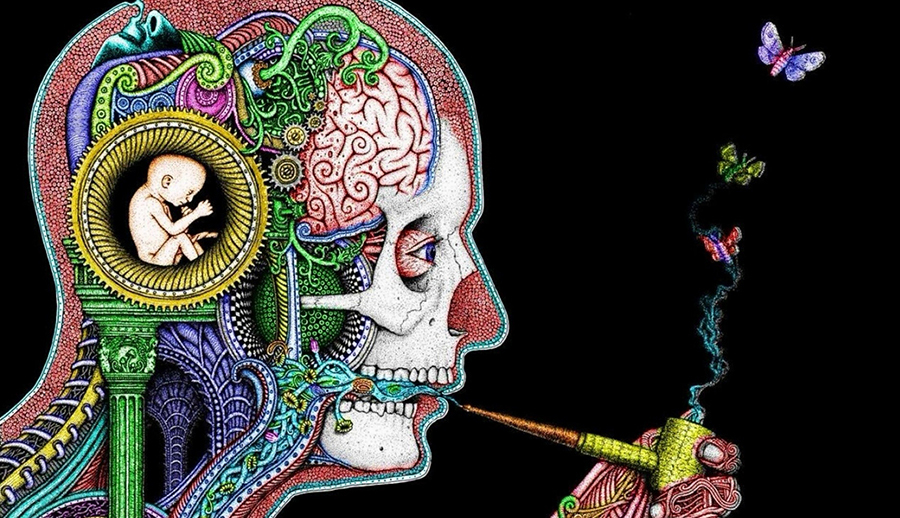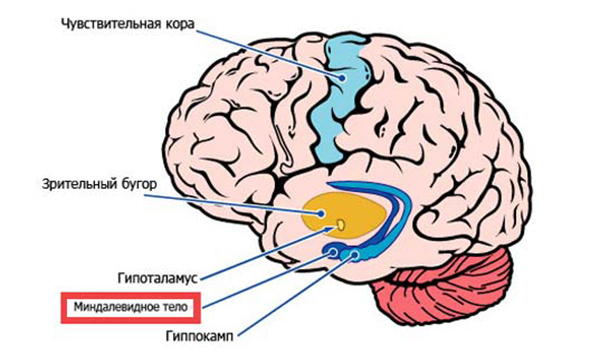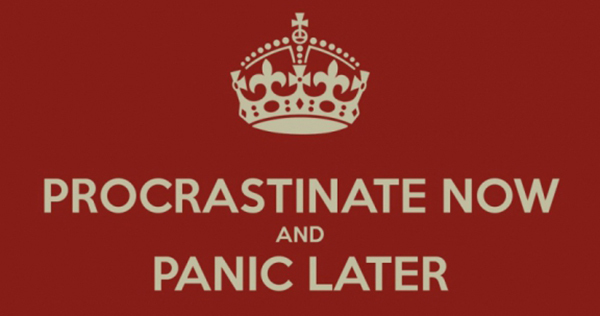What happens to our brain during procrastination?

Who today does not know about procrastination? Absolutely each of us is inherent in pulling rubber (of course, on different scales, some achieve excellence in this skill). Does this apply to you? Then you are superman, and this article is not for you (but I promise to tell you about curious things).
Almost everyone struggles with this phenomenon, a lot of advertised methods have appeared that are designed to help us in this difficult task, but basically they are all similar to most modern medicines: they treat symptoms, and not the cause of the disease itself. In order to reduce the level of procrastination, you need to understand what processes in our minds are caused by it. We already talked about how our brain responds to multitasking. Now let's look at the role that the impulses sent to them play in our procrastination.
Procrastination: what is it?
Wikipedia defines procrastination as “a tendency to constantly put off important and urgent matters, leading to life problems and painful psychological effects.” If you dig deeper, then from a psychological point of view, this is connected with the problems of self-control of a person: we take actions that immediately bring us satisfaction in order to avoid the task that we are afraid to undertake or which seems boring to us.
Let's look at an example. On a personal example. I like to run in the morning. In the evening, I am 100% ready to get up early to run. But when it comes time to get up, the pillow beckons much more than future "sports achievements." And I know very well that I will regret and reproach myself later, but the prospect that in an hour I will receive my award in the form of a soul and a body song seems much less attractive than continuing the sweet nap here and now. On such benefits as the positive impact of running on health in those moments is not even remembered. Familiar with that?

You will be great bad!
At the neurobiological level, constant procrastination is caused by emotions, which are based on an internal desire to protect oneself from the negative feelings associated with fear of failure. Life is not without irony - procrastination leads us into those networks from which we subconsciously try to escape.
What happens to our brain when we procrastinate?
The human body is an amazing laboratory. Hormones control our emotions and actions. We are simply addicted to dopamine - a hormone that is produced as a result of pleasant experiences. Our brain is aware of the actions that in the past led to the production of dopamine, and seeks to repeat them. If one task promises to stimulate a higher level of this hormone than another, then the brain will cling to the first kind of activity, avoiding other less pleasant actions.
In the brain of a person (and not only a person) there is a region that plays an important role in the appearance of procrastination. This amygdala, or amygdala, which got its name because of its characteristic shape. She is responsible for automatic emotional reactions to the situation, that is, she takes part in the formation of emotions, including feelings of fear and pleasure. The amygdala is involved in the formation of memories and the decision-making process, and can also cause various psychological disorders, including phobias.

When you worry about a huge number of tasks or complex work that you need to take on, the amygdala provokes a reaction of battle (resistance) or retreat (ignore), being one of the ancient tools of self-preservation of homo sapiens and trying to protect us from feelings of panic, depression and insecurity to myself. When she recognizes anxiety signals, the level of adrenaline in the blood increases.
In turn, adrenaline dulls the work of those areas of the brain that are responsible for planning and logical thinking. So, those structures of the brain that are “prone" to greater spontaneity seize power. So it turns out that instead of engaging in a project that we will be proud of in the long run or for which we will receive a reward, we are considering seals on Pinterest.

Our brain is intoxicated with the possibility of immediately receiving another portion of dopamine - and with the logic turned off, it takes its toll.
How to deal with this opponent?
Throw it with research results!
Back in 1925, in her graduation work, the future founder of Soviet pathopsychology, Bluma Vulfovna Zeygarnik, discovered an interesting feature of the human brain: we better remember exactly those things that we have already partially done. Zeigarnik found that people are able to tell twice as much details about the tasks for which they were interrupted, rather than about completed actions. In addition, the memories of projects that were not completely completed remain in memory much longer (and they haunt us, you add).
Then, Kurt Levin, in his experiments, showed that at the beginning of work on a specific task, tension arises that does not completely disappear if we interrupt the business we are busy with. It helps us better remember the incomplete action we are doing - and we strive to continue working on what we have not finished to realize the rest of our potential and get rid of this tension. 90% (!) Of the children who participated in his experiment sought to complete their creative work that had already begun, even if they were distracted and offered another occupation.
In studies conducted by psychology teacher Kenneth McGraw, people participating in the experiment were given complex puzzles and an “unlimited” amount of time was allocated to solve them. Before the puzzles were completed, they were told that the experiment was already over, and they could go home if they wished. And what do you think they did? All the same 90% of the participants continued to assemble the puzzle, trying to complete the task begun.
How to apply this in the fight against procrastination?
Just
get started. Everything is simple. As our grandparents said, the main thing is to start, and then it will go on itself (here’s folk wisdom - it always marks the bull's eye, and no science is needed).
All of the above studies tell us that if a person has reached a task and started working on it, then the chances that he will not forget about it and complete the work that has been started increase dramatically.
Therefore, based on scientific achievements and the “wisdom of the ancients,” you can derive a formula for successfully combating procrostination: just start the work that you don’t want to undertake, and which you put off “for later”. It is not necessary to start “from the very beginning” - start from anywhere. Just do it! And do not suffer from perfectionism: it is still better to do the job well, but now, than perfectly, but never. Can't get up normally in the morning? No need to give yourself "another 5 minutes" to lie in bed - just get up and do not waste time on "thinking". I know this can be difficult, especially when the prospect of jogging looms ahead. But after about 15 minutes it will be easier for you - your brain will find other sources of dopamine that he loves: aromatic coffee, contrast shower, favorite book.
In the fight against procrastination, motivation is very important. Think of it as a promise of yet another serving of dopamine to your stubborn brain. Of course, such an approach requires willpower, and very often you can’t get by with just one gingerbread. When I really don’t feel like doing something, I “take the rod” and just say to myself: “Do you want to read a book (to do your favorite hobby, take a walk, do another more enjoyable job)? Then complete this project and you will receive the coveted reward! ” The more I play the fool and pull the rubber, the less time I have for my favorite activities - this motivates.
Fool your brain
Our brain plays cat and mouse with us, provoking what we think only about the most difficult moments of work, scrolling through the worst-case scenarios. He is able to present our tasks in such a light that they simply swell in size and it seems that their implementation will take forever. Since our brain is trying to “make” our lives easier and protect us from hard work, it fools us, including an “action simulator” and palm off us a hundred small useless tasks to create a sense of employment.
When I was looking for techniques to combat procrastination, I came across a very interesting idea. Create a list of your global goals and present it as small tasks. For example, if you strive for a healthy diet and weight loss, then reduce it to "drink a glass of water, eat an apple." If you want to write a book, indicate in to-do that you need to write 2 pages (or even less). Want to start running? Do not write that you must do a half-hour run - limit yourself to “put on your sneakers and go outside.” And you will find that now your goals do not seem so grandiose to you. You're already wearing sneakers, right? So why not go for a run?
There are many ways to combat procrastination - from various trainings to web services and training with a personal coach. Pay attention to ourgoal achievement service - SmartProgress . We created it with the belief that it will be able to become a faithful assistant for users to set and achieve goals. As you already understood, the main thing is to set a task and take the first step. This is the most important part of the job. When the first step is taken, then it will be much easier for you to reach your goal. As soon as you cope with the tiny fraction of your huge task, your brain will begin to work "the other way", wanting to complete what was started.

The creators of the SmartProgress service were guided by the idea that it would help people not only set goals, but also successfully complete what they started to finish, motivating them to new achievements. We really hope that thanks to our article, you better understand what caused procrastination, and now you can more effectively deal with this ailment, and our team is always happy to help you in this difficult task. Set goals and go to them! Good luck
I recommend my other posts from our blog:
GTD in English (and not only): a new look at the study of foreign languages
Goal setting psychology: should I tell others about them?
The parable about how the Pomodoro technique saved an avid workaholic
